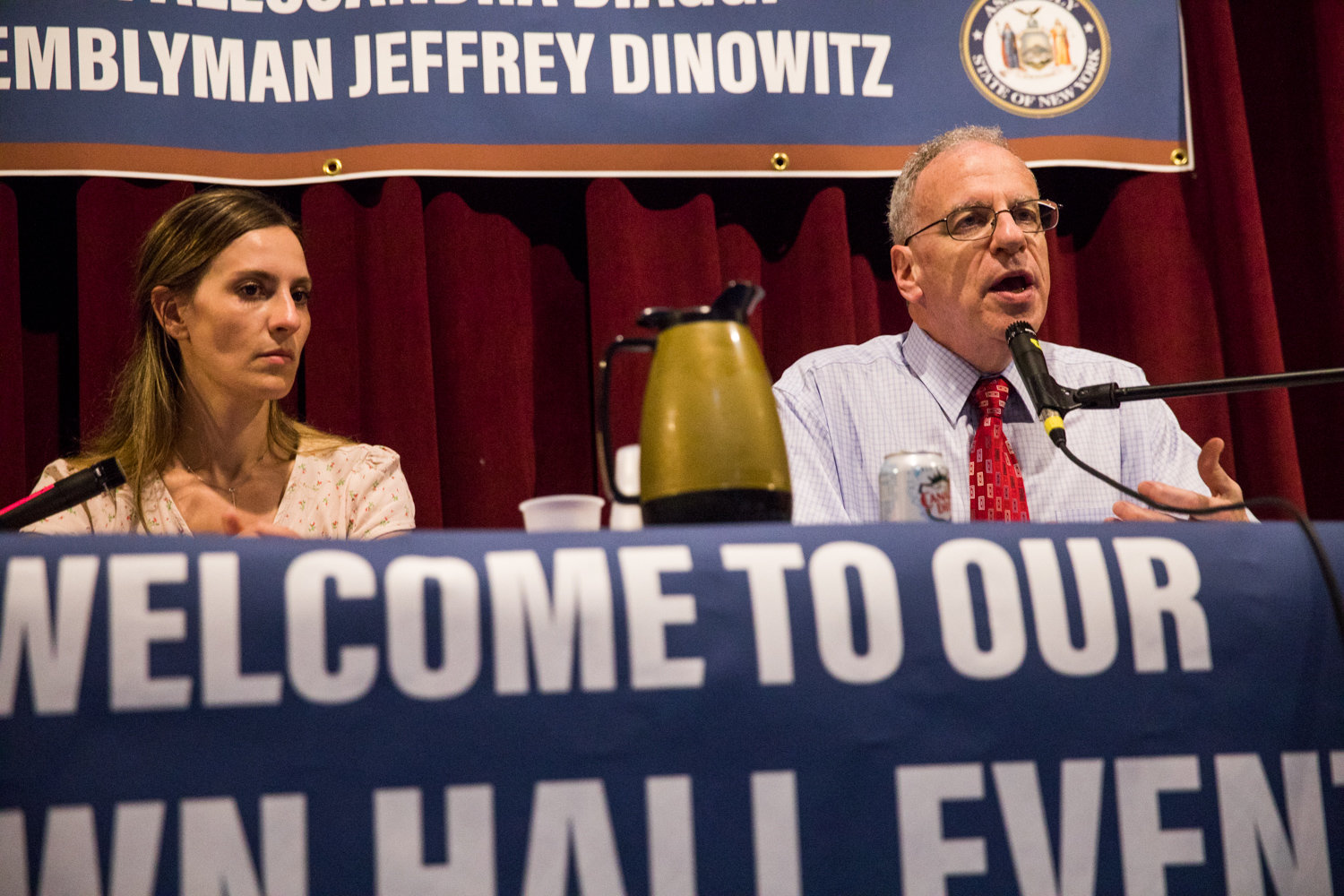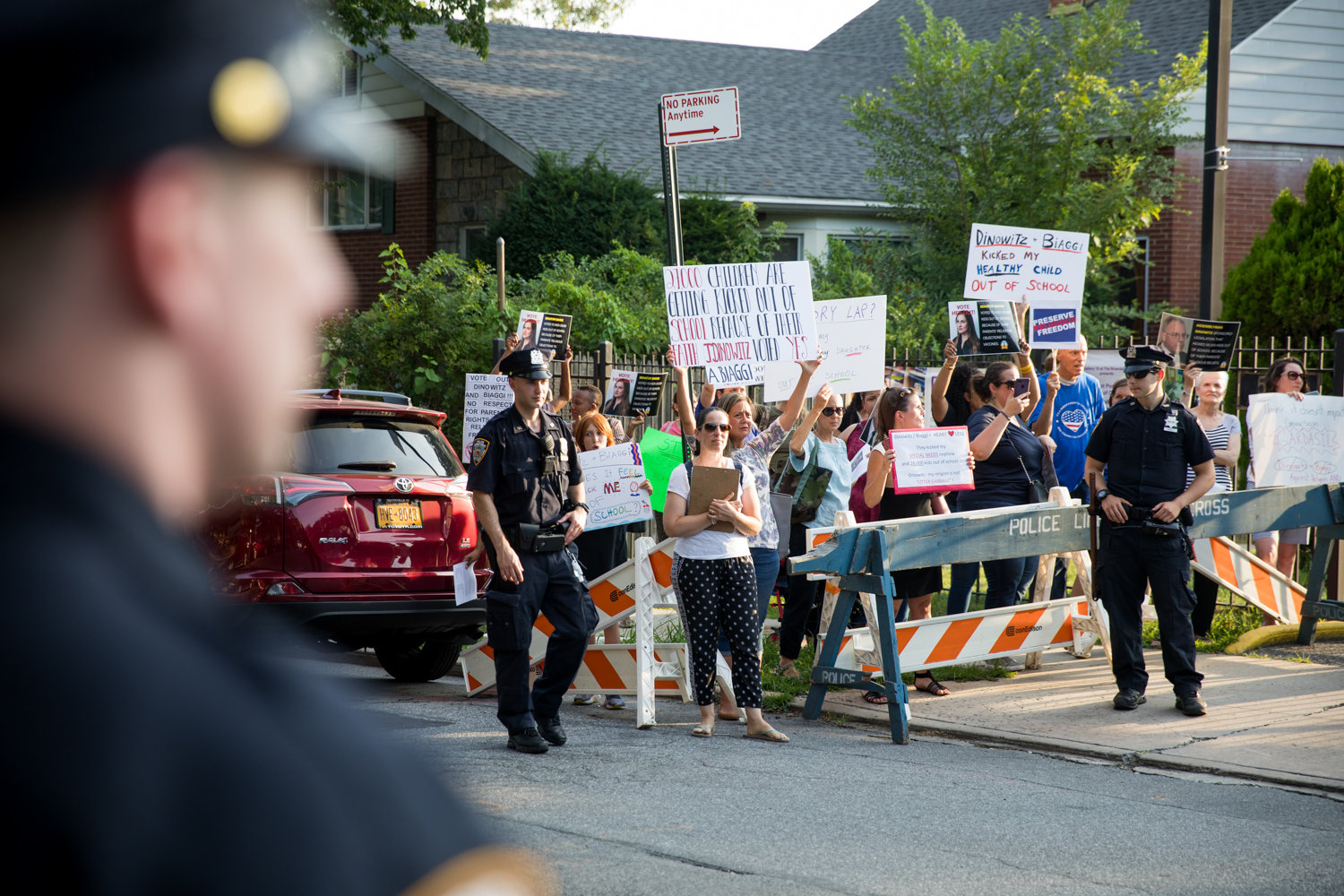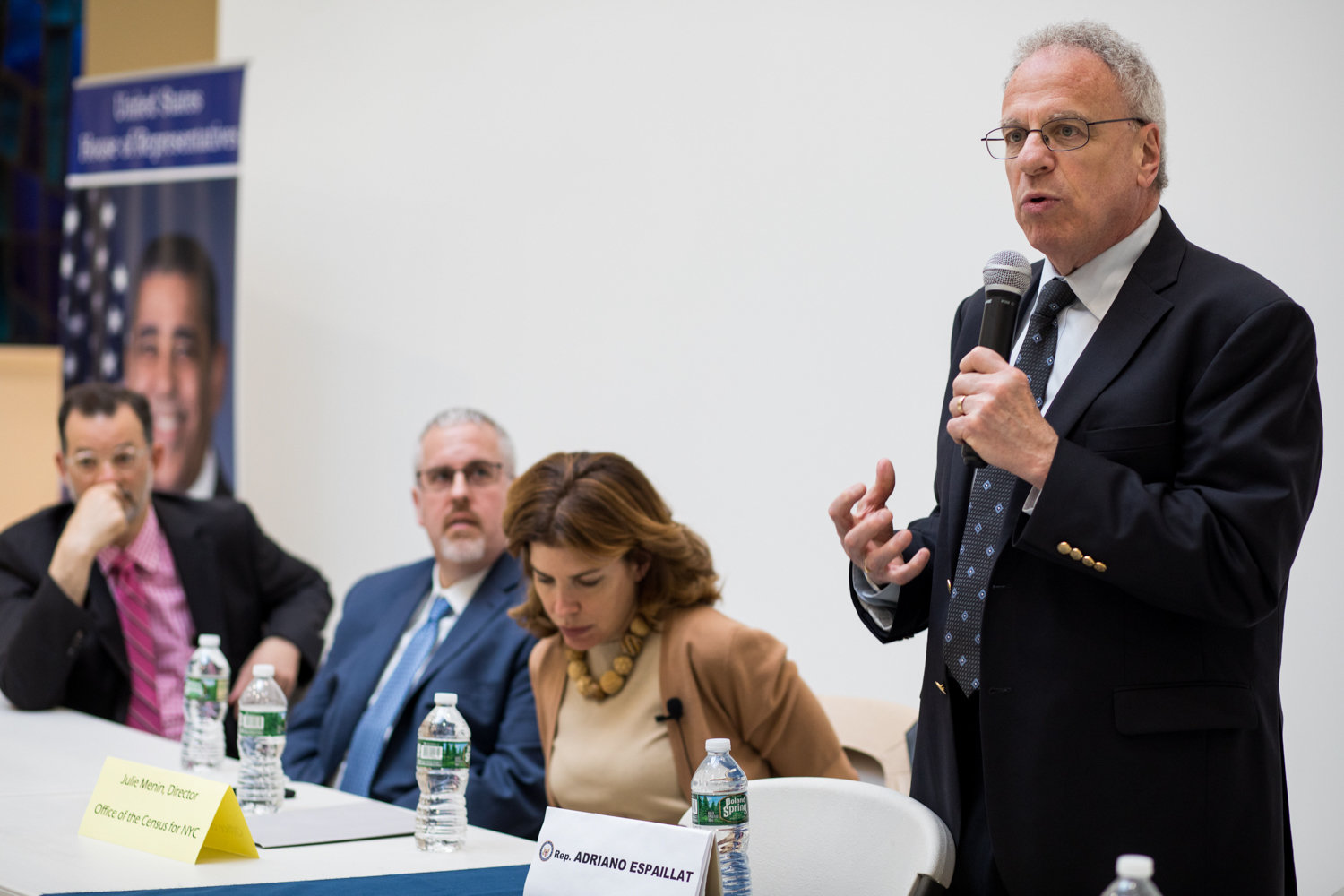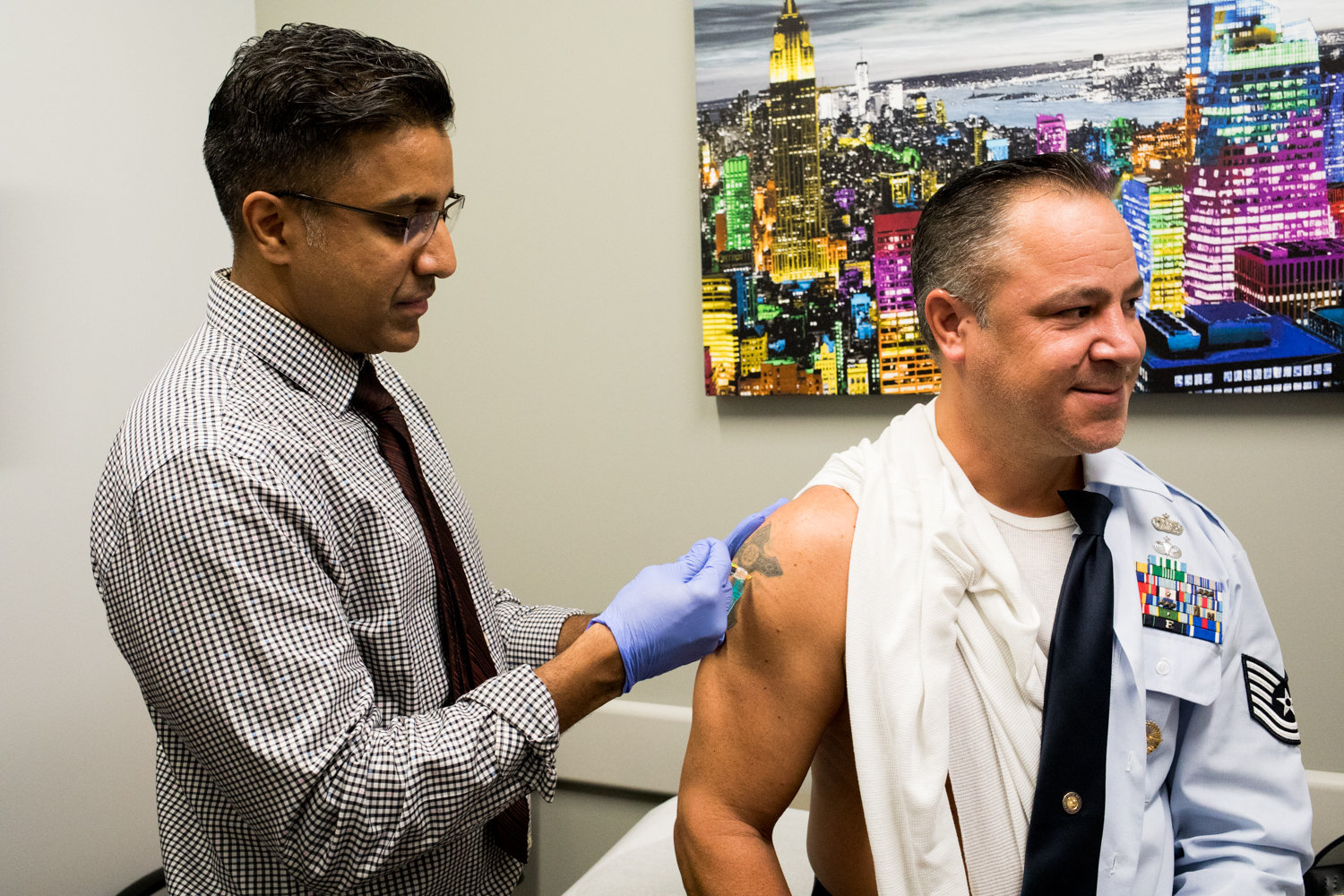Dinowitz doubles down on vaccination legislation
Assemblyman Jeffrey Dinowitz is no stranger to vaccines. Then again, neither is Greenwich Village state senator Brad Hoylman.
Earlier this year, the two lawmakers joined forces to end religious exemptions from vaccines after measles outbreaks in Brooklyn and Long Island. Now they’re coming together once again on a new bill they say would require schools to be far more transparent on how vaccinated their student bodies are.
A.8635 is designed to not only strengthen already publicly available school immunization records by making them searchable online, but also require the state health department to better analyze that data. If signed into law, the health department would have to issue an annual report sharing what percentage of school students are fully immunized, partially immunized, or exempt for health reasons.
Partially immunized children can include those who are not old enough to have a full course of vaccines, or who have one of the two required measles vaccines.
Dinowitz believes that information could help parents better determine if a school could be more risky for a child who can’t get vaccinated for medical reasons and are at risk of contracting diseases usually shielded by vaccines.
“This is data that the public has the right to know,” Dinowitz said. “If you know the vaccination rates, (of a school) if it’s a school where it might be 90 percent, it might impact where a parent wants to send their kid to school.”
Children who are allergic to vaccines or have other medical issues rely on “herd immunity,” The idea that if a majority of a population is vaccinated and cannot contract or pass on diseases, unvaccinated children also will be safe.
According to the Centers for Disease Control and Prevention, 95 percent of a population needs to be immunized in order to protect vulnerable people through herd immunity.
The law wouldn’t just help parents, Dinowitz said. It also could assist public health officials study the spread of infectious diseases in the state. Having the information publicly available would allow such data to be analyzed, possibly identifying low vaccination areas that may be at risk of an outbreak.
Dinowitz passed a bill last June ending religious exemptions from vaccines, spurred by the 2018 measles outbreak in New York, which started in October 2018 and was not declared over until this past September. In that time, more than 1,000 people were infected in the state, with some 65 percent of those cases found inside the city.
Yet, even with that effort becoming law, Dinowitz said he realized public health officials struggled to find vaccination statistics in some areas because they simply were not made public.
This new bill would require the health department to release “an analysis of statewide trends in immunization rates and exemptions over time” and an analysis that would identify schools and areas with an immunization rate of less than 95 percent.
Although medical information is traditionally kept private, Dr. Theresa Madaline — an epidemiologist at Montefiore Hospital — says that as long as personal information is not released, making this data public is “appropriate and necessary.”
P.S. 24 principal Steven Schwartz, however, felt differently, concerned about the privacy of students if such a bill were to become law.
“I would hope that the department would take into consideration the privacy of families,” Schwartz said. “There’s only certain information that we can release to the public.”
The bill does specify that “individual identifying information” will be protected, and data would not be linked to individual students and families.
“We’ve had no major cases of any major diseases,” Schwartz said. “As the principal and as a father of two, we’re going to do everything we can to keep everybody safe.”
While P.S. 24 has not had any issues with diseases in schools, they did have families who had to pull unvaccinated children after the bill passed.
“It’s a very controversial topic,” Schwartz said. “It’s difficult because we want to respect all families.”
Under-vaccination was a key factor in the 2018 measles outbreak, Madaline said, especially in Rockland and Orange counties.
The bill, Dinowitz said, essentially works alongside his previous legislation to eradicate preventable diseases from the state.
“In this country, you’re less likely to die from measles than in the past,” the Assemblyman said. “In other places, it regularly kills huge numbers of people. To me, it’s lunacy not to take the steps necessary to prevent that from happening.”
While the Bronx was not a hotspot in the outbreak, it does have populations with low vaccination rates, Madaline said, particularly adult immigrants who may not have received all of the required vaccines as children.
“We try to be very careful when they present for medical care,” she said, and will do a thorough medical history to decide whether they need vaccinations. Luckily, Madaline added, the measles vaccine is equally as effective in adults as it is children.
While measles itself no longer is as deadly as it once was, it can still cause short- and long-term health complications. According to the CDC, 1-in-20 infected children will develop pneumonia, the leading cause of death among young people who contract measles. Less common but more serious complications include encephalitis, a swelling of the brain that can cause permanent hearing loss and developmental disabilities.
“Vaccines are a really important public health tool to prevent diseases that can be life threatening,” Madaline said. “There is abundant evidence out there about the safety and efficacy of vaccines, and we encourage them.”













